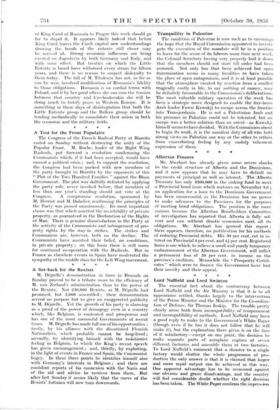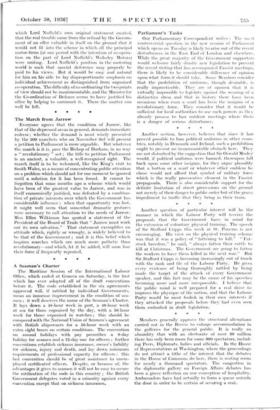Lord Nuffield and Lord Swinton The essential fact about the
controversy between Lord Nuffield and the Air Ministry is that it is to all appearance settled, thanks largely to the intervention of the Prime Minister and the Minister for the Co-ordina- tion of Defence, Sir Thomas Inskip. The trouble pretty clearly arose both from incompatibility of temperament and incompatibility of methods. Lord Nuffield may have a good reply to make to the Government's White Paper (though even if he has it does not follow that he 'will make it), but the explanation there given is On the face of it satisfactory—except on one point, the decision to make separate parts of 'aeroplane engines at seven different factories and assemble them at two • factories. To Lord Nuffield's comment that a disaster to a single factory would shatter the whole programme of pro- duction the only answer is that it is claimed that larger and more rapid output can be achieved in this way. One apparent advantage has to be measured against one obvious and grave disadvantage, and the country will feel considerable doubt whether the right decision has been taken. The White Paper confirms the impression which Lord Nuffield's own original statement created, that the real trouble came from the refusal by the Govern- ment of an offer valuable in itself on the ground that it mould not fit into the scheme in which. all the principal motor-firms (at. one period with the intention of co-opera- tion on the part of Lord Nuffield's Wolseley Motors) were uniting. Lord Nuffield's position in the motoring world is such that special deference may properly be paid to his views. But it would be easy and natural for him on his side to lay disproportionate emphasis on individual achievement as distinguished from organised co-operation. The difficulty of co-ordinating the two points of view should not be insurmountable, and the Minister for the Co-ordination of Defence seems to have justified his office by helping to surmount it. There the matter can well be left.
* *





















































 Previous page
Previous page